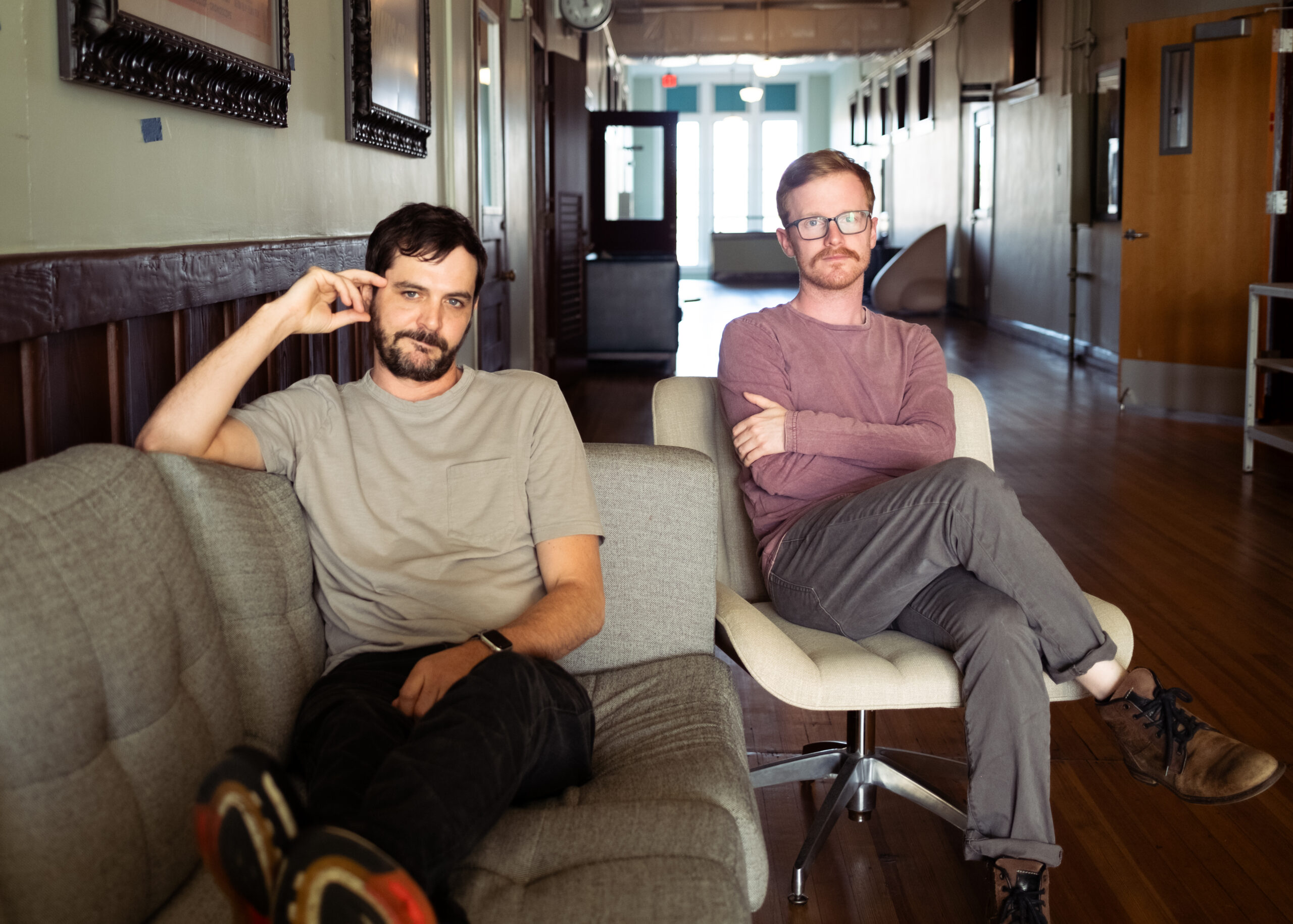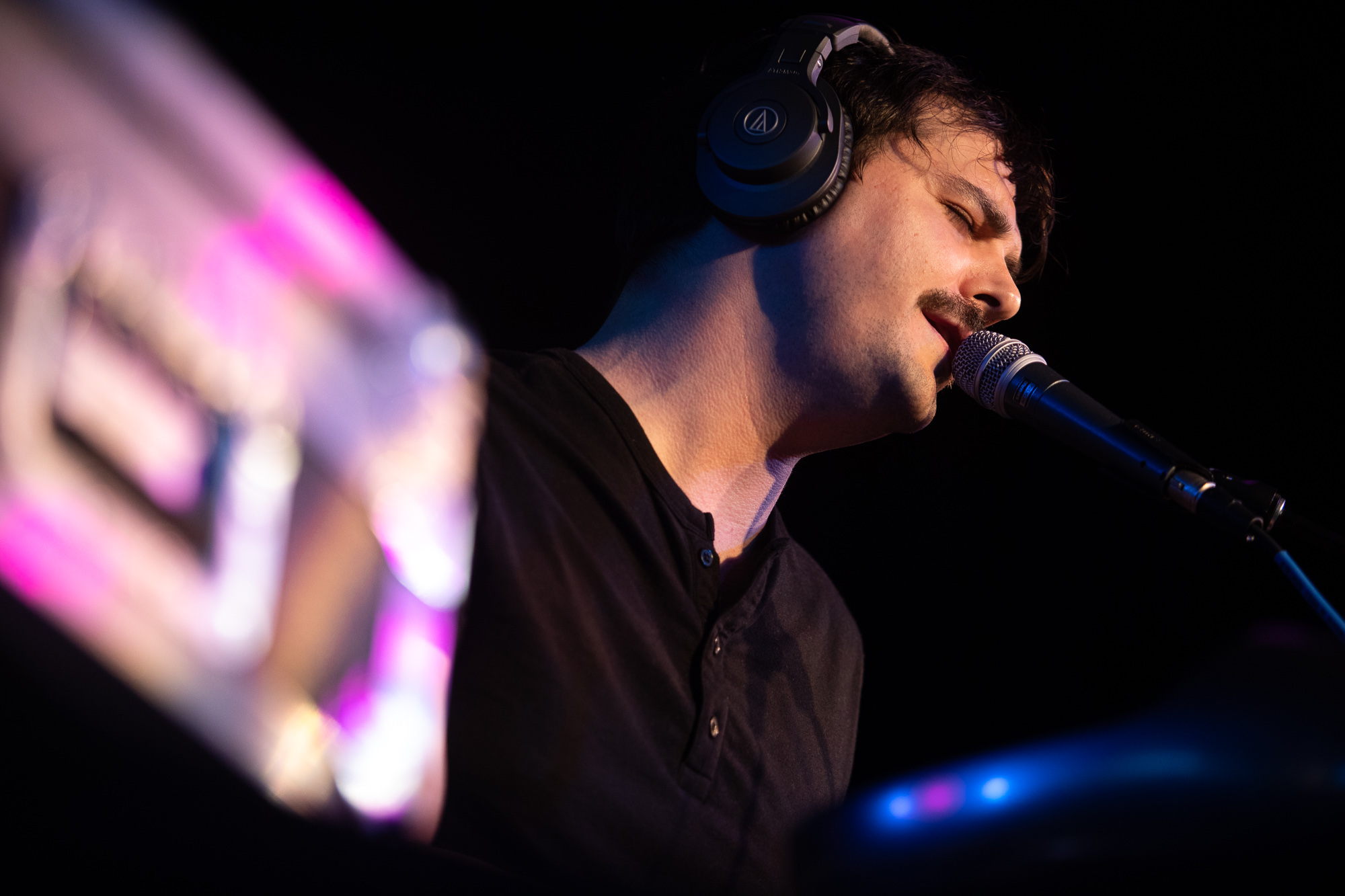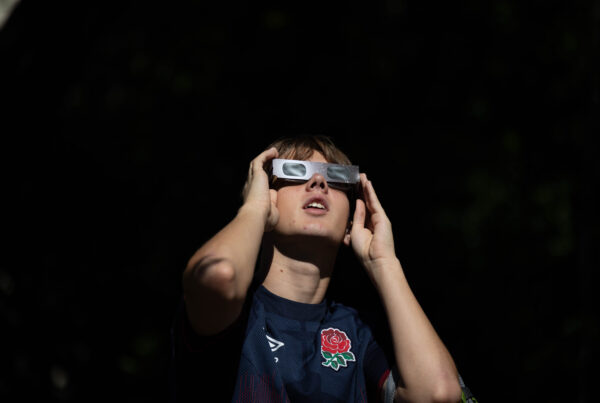When he began making a splash in the Austin music scene – known for its Americana and indie rock – Roger Sellers seemed to come out almost out of the blue with a far more ambient, hypnotic electronic sound that could take you to other places.
Sellers eventually adopted a musical alias, “Bayonne,” though his approach stayed on track, growing to considerable critical acclaim. In 2023, he released his album “Temporary Time,” an album so gently intoxicating that a review by Beats Per Minute described the effect of listening to it as “like a glass of champagne just right.”

The album cover for “Temporary Time (Orchestrated)”
Now that album is getting a new treatment – collaboration between Roger Sellers and composer and producer Nathaniel Earl titled “Temporary Time (Orchestrated).”
The two joined Texas Standard to talk about the collaboration. Listen to the interview above or read the transcript below.
This transcript has been edited lightly for clarity:
Texas Standard: I want to ask you first, Roger, about that album “Temporary Time.” I understand a lot of it was influenced by a tough time in your life. Can you say more?
Roger Sellers/Bayonne: Yeah. It was just a period where I was looking to, basically, just what to do next, creatively.
It was during COVID. I ended up getting an extra space to kind of get my work done and a little studio apartment in Hyde Park. And so I kind of just let everything… Laid it all bare and just kind of went for it.
And it was a period of time where there were a lot of transitions in my life. I guess when I was around, like, halfway through it, my father had passed away from a bunch of different health issues. It was kind of looming. So that was kind of an anchor for me to really just jump in creatively and to use it as kind of a healing process.
And it was about this time, I guess, after the release of your album “Temporary Time” that Nate, you actually heard some of these tracks and they touched you. You had just lost your dad, too, right?
Nathaniel Earl: Correct. Yeah. I heard “Solo” – was that your first release? I can’t remember. Your first single?
Bayonne: Yeah, I think that was the original. Yeah, the first single.
Nathaniel Earl: I was actually listening to KUTX, and I heard “Solo” pop up and it, like, moved me really deeply. I actually was in tears as I was driving home. I had just gotten some unfortunate news about a loved one of mine, and was in an intense grieving process.
The song touched me in a way that kind of just stimulated some kind of creativity. So I went home and composed some strings to it, just sort of as an exercise of, I don’t know, exorcizing the demons, I guess, and –
Catharsis, it sounds like.
Nathaniel Earl: Yeah, catharsis. There you go. Thank you.















